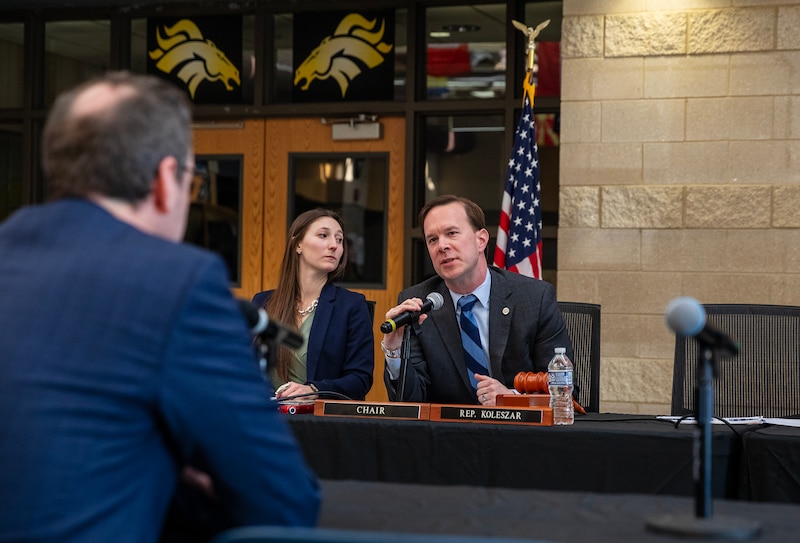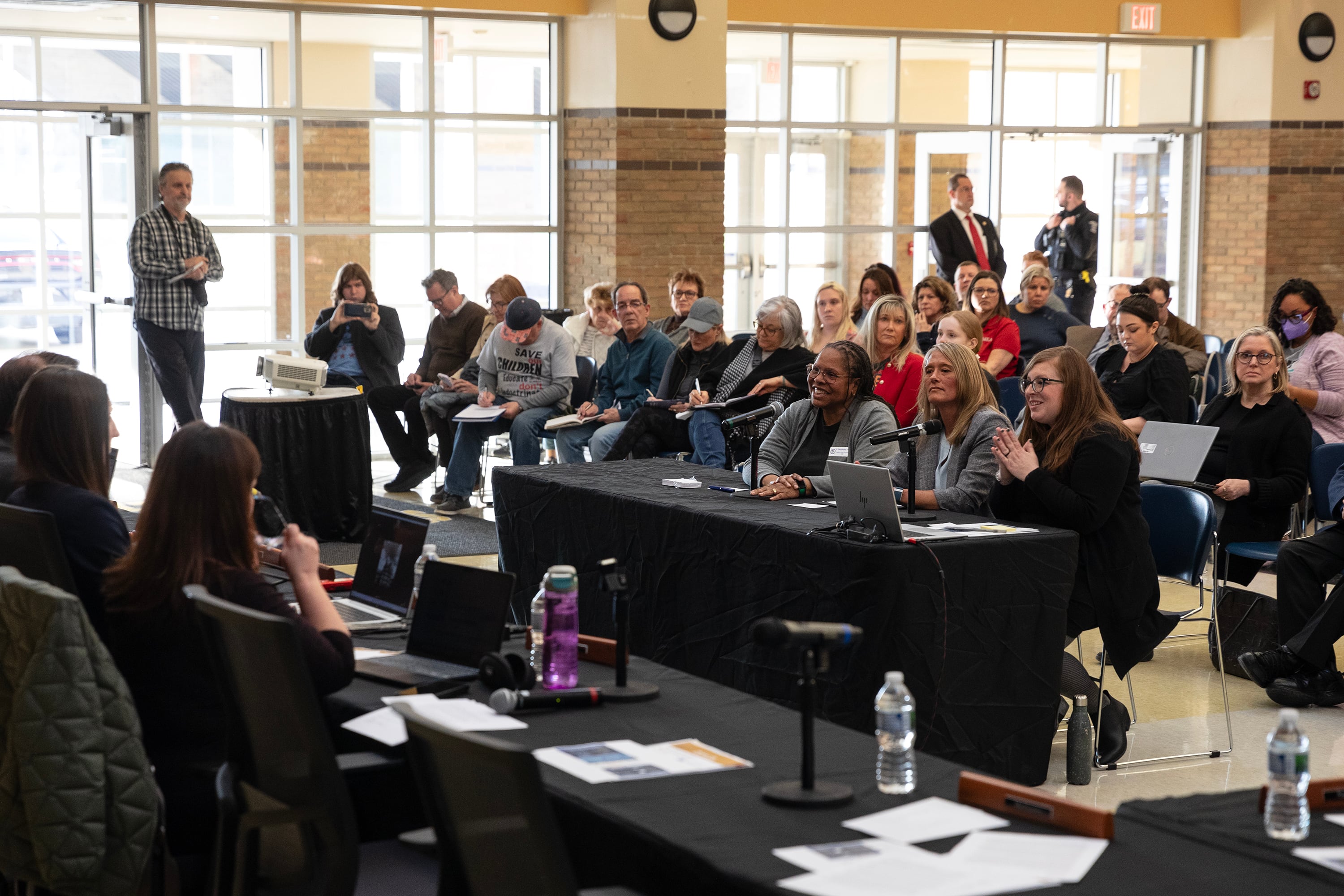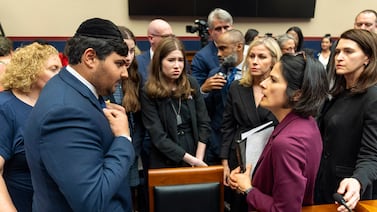Though Michigan schools have hired more counselors, psychologists, and social workers in recent years, educators say there still aren’t enough staff to address the state’s student mental health crisis.
School administrators and mental health professionals asked legislators to invest in programs to attract and retain staff in hard-to-fill positions to address students’ social and emotional needs Monday night at a House Education Committee hearing at Sterling Heights High School. They say that by hiring more staff to focus on student mental health, schools will be safer and academic outcomes will improve. They also asked legislators to extend funding for existing programs such as the student mental health apprenticeship program for training and retention and add more funding for training programs with distance learning options.
Since 2018, legislators have allocated funds to hire more school mental health workers with targeted funding. The state’s schools added 1,300 mental health professionals to its schools in the last five years.
The 2021 school aid budget included a onetime investment of $240 million to add more school staff to address student mental health. In 2023, the state allocated $150 million to improve student mental health, and $328 million has been allocated for 2024.
“It’s a great start,” said Diana Wheatley, a school social worker at New Haven Community Schools in Macomb County, at the hearing. “Let’s keep it going so we can meet the needs of all students.”
Michigan had the third highest ratio of counselors to students in the U.S. at one counselor for every 615 students during the 2021-22 school year, according to the American School Counselor Association, falling short of the ASCA’s recommendation of 250 students per counselor.

“That’s startling,” said Rep. Matt Koleszar, a Democrat representing Northville, Plymouth, and parts of Livonia, of the ratios during the hearing.
The ratios of school psychologists and social workers for every student in Michigan for 2021-22 were also higher than are recommended by professional associations, according to the most recently available data.
The state had a ratio of one school psychologist to every 1,445 students. The recommended ratio is one psychologist to 500 students. The ratio of school social workers to students was one to 1,051. The recommended ratio is one social worker for every 250 students.
Michigan is not the only state facing an ongoing shortage of mental health professionals who serve youth.
Since the pandemic, students’ needs have grown, said Lauren Mangus, president of the Michigan Association of School Psychologists, during the hearing.
“Before the pandemic, there was already a mental health crisis,” said Mangus. “During the pandemic, youth depression and anxiety doubled.”
In 2021, an estimated 15% of U.S. youth ages 12 to 17 had experienced a period of at least two weeks of symptoms of major depression, such as thoughts of suicide or feelings of hopelessness, according to the most recently compiled data by the National Institutes of Mental Health.
A 2021 report from the Centers for Disease Control found more than 20% of teens have had suicidal ideation, or serious thoughts of suicide.
Hannah Dellinger covers K-12 education and state education policy for Chalkbeat Detroit. You can reach her at hdellinger@chalkbeat.org.






